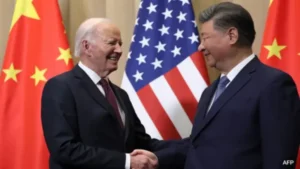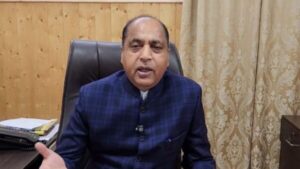OPEC’s surprise production cut complicates the Fed’s fight against inflation
The Organization of the Petroleum Exporting Countries and oil-producing allies Russia and Azerbaijan, collectively known as OPEC+, have decided to cut oil production by 1.15 million barrels per day. Oil prices have fallen more than 6% to around $85 a barrel as a result, and are forecast by Goldman Sachs to climb as high as $100 a barrel, though not everyone shares that level of pessimism.
This is a blow to global growth, the fight against inflation and financial stability. OPEC+, now that they have taught the short sellers a lesson, should consider increasing production so as not to kill growth and oil demand.
While OPEC draws criticism for high oil prices with its publicized production cut – the second since last October – another culprit escapes attention: US shale producers. While the fall in global oil prices in 2014 hurt US shale producers, who had increased production to make the US the largest producer of crude, their refusal to increase production significantly contributed to the rise in oil prices. Is.
The price of oil that makes shale oil production viable is generally thought to be around $60 to $65 per barrel, meaning that since the decline in oil prices, the US shale oil industry has made more shareholder returns than increasing production. More focused on service. ,
The World Bank’s annual publication, Global Economic Prospects, sees a lost decade for the world’s developing countries, given the current economic climate of rampant inflation, high interest rates, pressure on developing countries to depreciate against the dollar (which includes oil and other major items have been designated and debt repayments to be made), and a policy-induced recession or outright recession in advanced economies.
High oil prices widen the current account deficits of countries such as India, which import oil, and depreciate local currencies. To counter the resulting rise in imported inflation and prevent further depreciation of the currency, the developing country’s central bank feels compelled to raise its policy rates of interest. High rates discourage investment and growth. Furthermore, an increase in rates reduces the value of assets held by banks, creating the potential for financial fragility.
While it is not directly in India’s hands to increase the global supply of oil, it is up to New Delhi to adopt measures that can reduce the damage caused by higher oil prices. The government has removed windfall profit tax on oil companies and reduced export duty on refined product exports. It’s all for the best. This provides a cushion for oil companies to absorb some of the increase in prices without having to fully and immediately pass them on to consumers.
The government should avoid trying to use the exchequer to minimize the impact on consumers. The increase in fiscal deficit, to bear the burden of fuel subsidy, would meet additional demand across the board and moderate inflation. A calibrated increase in fuel prices will reduce fuel consumption and limit the impact on prices to some extent.

Continuing the achievement of the journey of effectiveness and credibility of more than 10 years in the career of journalism, as a woman journalist, I am Serving as the founder, promoter and editor of DiaryTimes with the trust and support of all. My credible coverage may not have given a big shape to the numbers, but my journey presents articles that make you aware of the exact and meaningful situations of Himachal’s politics, ground issues related to the public, business, tourism and the difficult geographical conditions of the state and financial awareness. DiaryTimes, full of the experience of my precise editorial expertise, is awakening the flame of credible journalism among all of you, so that the eternal flame of meaningful change can be lit in the life of the people of the state and the atrocities being committed against the people can be brought to the fore, I am motivated for that. If even a small change comes with the power of my journalism and the whole world becomes a witness to that issues, then I will consider myself fortunate.








